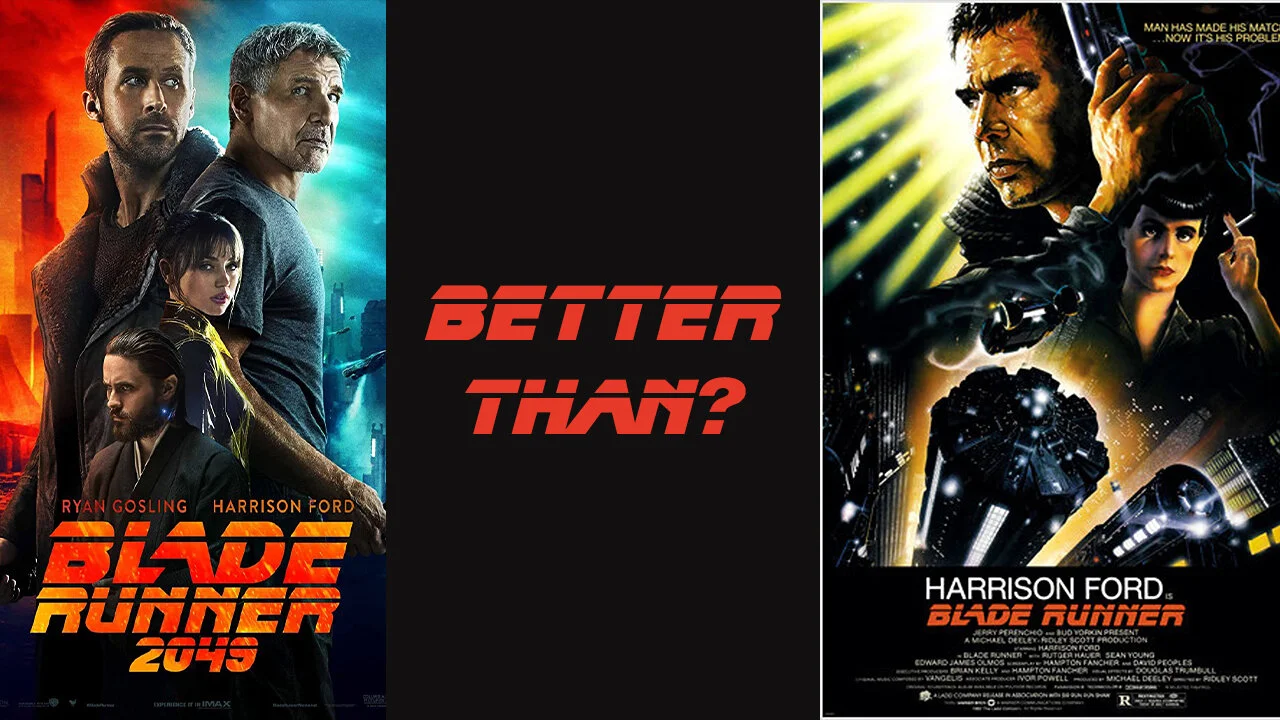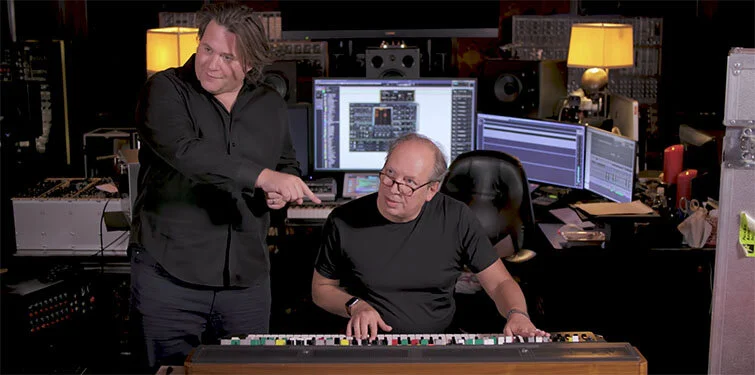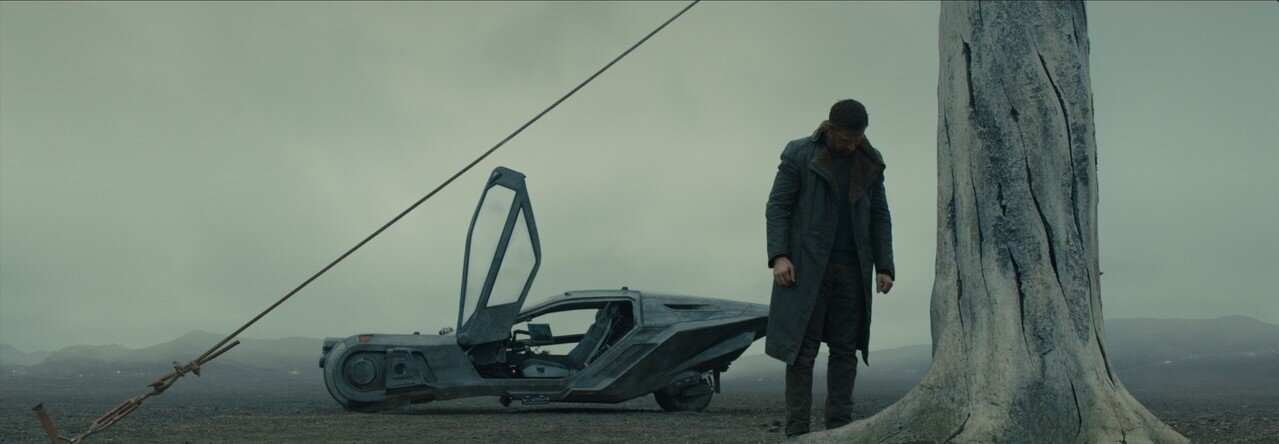10 Reasons Why 'Blade Runner 2049' is better than 'Blade Runner'
If you haven't' seen the movie, see it then read this. No intro, let's jump right in.
1. K is a replicant
The reveal of K's genetic code, or lack thereof, flips everything we assume the movie will be on its head. We are learning along with K what it means to exist. Do we as humans, live like replicants? Do we obey a society that treats us like trash but breath anyways out of the fear of death? Where we viewed "Blade Runner" mostly through Deckard's eyes who didn't have much of a personality, K's lack of a character is his entire purpose for existing. For K to emote is to face death.
Where Harrison Ford's Deckard entire arc was us questioning if he's human or not (despite what Ridley Scott unequivocally says), there's nothing much of substance to Officer Deckard. He gets drunk, retires replicants, that's it. Name one thing that makes Deckard standout? I'll wait. Ryan Gosling's Officer K goes from a machine that is dying spiritually on the inside to someone wanting to have a purpose in life. All while maintaining his composure, if perhaps too much poise for the film. Anything with a conscious can feel. Whether or not how it was made is as relevant as where you were born or what skin color you are. The importance is that you're here.
K doesn't seek gratitude nor affirmation. He doesn't suffer from a narcissistic personality. All he wants is not just to be another useless piece of metal.
2. Deckard has depth this time
Being a daddy changes you a lot. Rick isn't just a slouchy drunk who likes to shoot robots out of legal obligation. He's a man who's principles and love for forbidden things cost him his life. What kind of soul did Deckard have in the first film? Who did he care for? Please don't say, Rachel, we all know why he was attracted to Rachel. Like Winston in 1984, Deckard rejects Big Brother for a life of pain to gain a glimmer of happiness.
3. It's horrifyingly relevant
Denis Villeneuve based the imagery in 2049 on a planet that has become degraded with pollution. The buildings are extrapolating enormous amounts of water into the atmosphere, the sea wall at the end of the picture will be our new Mount Rushmore, the orange Vegas is happening now. Denis Villeneuve didn't predict the earth looking like this, but his production team was still spot on. A picture that transcends its very style, developing a look that will be discussed on its merits separate from the ubiquitous original, is a stunning achievement.
Everything isn't dystopian because that's the way it was in the book. It's what will happen to us in real life, why we'd look for colonies to live on if we had the technology or funding towards NASA to do so. God help us all.
4. The love story questions the essence of relationships
The story between K and Joi further examines the meaning of love, sex, and mortality, with the two being different versions of artificiality. When the default sexed-up version of a naked Joy pops up on the screen, we are emotionally mortified. Some of us may be repulsed to observe a character we care for utilized like a thirsty Godzilla.
The towering ad tries to seduce K tempting him to buy it, rendering everything Joi said to K throughout the picture questionable. Its manipulation solidifies his final decision in life to help another man. We're not sure if she loved him or said what it thought it wanted him to hear throughout the narrative. Possibly Joi herself didn't know her intentions. An unusual amount of nuance and uncertainty rests in the love story. Who do we love? Why do we love? Do we love by the heart or the heart of our designers whom we don't know?
Meanwhile, Deckard was just drunk and horny when he bashed Rachel up against the wall. Sorry, that really was all there was to their passion despite what Wallace says.
5. The movie was an honest commentary about how the world views woman
Here's a controversial one. A lot of women were disgusted by the way they were depicted in the film. Outwardly watching the movie, I can't blame them. I'll let Mr. Villeneuve speak for himself. "I am very sensitive to how I portray women in movies. This is my ninth feature film and six of them have women in the lead role. The first Blade Runner was quite rough on the women, something about the film noir aesthetic. But I tried to bring depth to all the characters. For Joi, the holographic character, you see how she evolves. It's interesting, I think. What is cinema? Cinema is a mirror on society. Blade Runner is not about tomorrow; it's about today. And I'm sorry, but the world is not kind on women."
Villeneuve is right. Women today are still sexualized. Even with the Me Too movement, women are continually seen as sex objects or subservient slaves in a male-dominated society. Villeneuve isn't interested in painting a rosy picture that Hollywood does for female roles to make the audiences feel comfortable. It's an honest reflection on who we are. What we see is what we don't want to see, but that's part of the honesty of cinema.
6. The score is mesmerizing
Another point in which I may face some contention. Yes, Vangelis' score is iconic, but it only works for the era it was composed in. Much of its mixture of bleeps, blops, and wind chimes are a product of its time. A lot of emotion is missing from the score other than the opening theme and "Tears In Rain." Hearing much of the soundtrack while on the road, I sometimes thought I was listening to something from a porno. Take a listen to "Wait For Me" in the soundtrack and tell me otherwise. Hans Zimmer and Benjamin Walfisch's score is timeless while also paying respect to Vangelis' synthetic use in the original. It dives into the character's mind providing a replication of something more human than what Vangelis composed.
7. It thematically ties more directly to "Do Androids Dream of Electric Sheep" than "Blade Runner" does.
"Blade Runner" got the overall gist of Phillip K Dick's novel. Replicants are scared, trying to find a way to survive as Deckard hunts them down. However, the Andies in the movie almost deserve to die. In their quest for more life, they torture and kill multiple civilians. What did the guy making the eyes do to deserve being frozen to death? What about J.R. Sebastian? He was nothing but pleasant to Roy and Pris. Did Roy eye gauge him when he was done with Tyrell?
Aside from Luv (Sylvia Hoeks), our replicants are fully rounded people. Sapper Morton is a watchful protector who was meant to be a NEXUS 8 combat medic; Joi's true intentions come into question for herself and us. K's inner conflict is the central core of the story. All of this revolves around the meaning of existence within a world that has forgotten about you. The introduction of Robo procreation is an evolution of Dick's ideas, widening his notion of why life exists in the first place.
8. It doesn't get lost in the scale
Many sequels love scope over characters. Remember "The Matrix"? Remember how they talked about Zion and all these other things we didn't see? When the sequels brought in Zion, the focus got lost in the spectacle. "The Matrix Reloaded" was a bumbling CGI mess of Agent Smith Clones and cave orgies. "The Matrix Revolutions" was a glorified "Space Invaders" game. Shoot as many sentinels as you can before becoming overwhelmed. Amidst the sequels bumbling chaos, I missed the smaller scale of the Nebuchadnezzar crew.
The story of "2049" could have focused on the replicant uprising with thousands of robots slamming into humans. We could have gone off-world to finally see what all these other colonies we've heard about are like. Some have argued that the movie could have borrowed some of its source material from the later novels about replicants creating humans, so on and so forth. All of that sounds incredible in theory. In execution, you would likely get "The Matrix" sequels.
A movie that overreaches in scope, attempting to please fans by showing everything. What we got was an incredibly meaningful story that further explores the themes of the original while building upon its world without going too far. We see what's beyond L.A. on the dilapidated west coast. The answer is not much. The film aims at minimalism over extravaganza.
9. We're still talking about it
After being MIA for decades, "Blade Runner 2049" isn't forgotten. I can't say the same for "Superman Returns," "Monsters University," "The Incredibles 2," "Live Free or Die Hard," and "Indiana Jones and The Kingdom of The Crystal Skull." In fairness, people do talk about Indy 4, but not in a positive fashion. "Blade Runner 2049" returned to the limelight with disastrous box office results yet high accolades, even gaining the Academy's attention. Ironically it seemed destined to live the life of its predecessor.
"2049" may have tanked because it was a multimillion-dollar art film that respected its audience's intelligence. Maybe "Blade Runner" was too far gone amongst the public to gain an interest geared almost entirely towards comic books and Disney. I think the trailers after the reveal teaser looked too generic for my own two cents, turning me off from the film for a short while.
Here we are with Honest Trailers in 2020, making a video about a film that came out in 2017. Bloodsoaked orange skies from the headlines mention the atmosphere of this film. Somewhere, about 100 other people are writing their analysis of "Blade Runner 2049" as I type right now. Seven years from now, we'll be talking about why the world is still like "Blade Runner 2049." Villeneuve made a timeless sequel to be remembered.
10. It's better than the first film and one of the best films in the last ten years
Here's why you'll probably agree with this one when you put your pitchfork down. Remove your nostalgia goggles. I know it's hard to do, please, trust me. Look at the points I made above. Think about how ironic the love story is to our lives. The layers of meaning behind K's existence is lightyears beyond the featureless Rick Deckard. The picture isn't flawless. Niander Wallace is spectacularly corny in his scenery-chewing grim monologues. Dr. Eldon Tyrell had some ambiguity regarding the morale of his intentions. For that, I'll give the original the benefit of my doubt. I understand Ryan Gosling was cast to be intentionally deadpan, but it's okay to emote once. His distant stare in all of his other performances made it difficult for me to discern myself from the actor's rather dull persona.
With this said, "Blade Runner 2049" understands cinema. Its atmosphere is why we venture into a dark room that takes us to a different place. Denis Villeneuve's masterful follow up is one of the most orgasmic cinematic experiences I have witnessed in the last ten years that demands a re-screening in 2022 when theatres reopen at an entirely safe capacity. The style doesn't overshadow its substance, which is far richer in detail than the original without grasping at blatant metaphors. "Blade Runner 2049" is slow cinema at its finest, letting us into the character's heads, knowing when to be quiet and when to be loud.
Like "The Empire Strikes Back," not everyone appreciated the movie at first. Time has been incredibly kind to it, though. I wish the Academy recognized "Blade Runner 2049" beyond its technical marvels in 2018. I suppose it wasn't the type of picture that catches Oscar voter's eyes. But it has acquired the audience's to this day. Now, if you could just look up and to the left for me?












